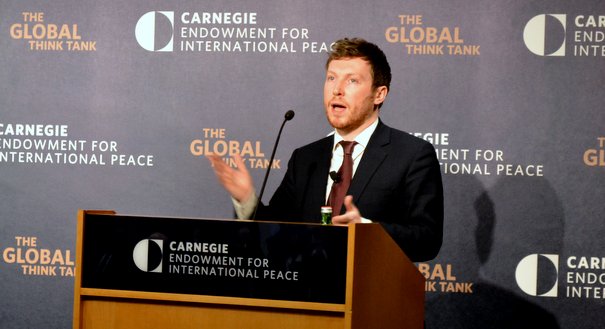Registration
You will receive an email confirming your registration.
The China-Pakistan axis plays a central role in Asia’s geopolitics. For decades, each side has been the other’s only “all-weather friend,” but their relationship is still little understood. Andrew Small’s new book, The China-Pakistan Axis: Asia’s New Geopolitics, explains the ramifications of Sino-Pakistani ties for the West, India, Afghanistan, and Asia as a whole. It sheds light on the relationship’s most sensitive aspects, including Beijing’s support for Pakistan’s nuclear program, China’s dealings with the Taliban, and the Chinese military’s planning for crises in Pakistan. From China’s involvement in South Asia’s wars to the Obama administration’s efforts to secure Chinese cooperation in stabilizing the region, Small traces the dilemmas Beijing increasingly faces as it pursues its strategic rivalry with India and the United States, while addressing a terrorist threat that has become one of the gravest dangers to China’s internal stability. Carnegie hosted a conversation with the book’s author, moderated by Frederic Grare.
Andrew Small
Andrew Small is a transatlantic fellow with the Asia program at the German Marshall Fund of the United States, which he established in 2006. He previously worked as the director of the Foreign Policy Centre's Beijing office; as a visiting fellow at the Chinese Academy of Social Sciences, and was an ESU scholar in the office of Senator Edward M. Kennedy. His articles and papers have been published in outlets including the New York Times, Foreign Affairs, Foreign Policy, and the Washington Quarterly.
Frederic Grare
Frederic Grare is senior associate and director of Carnegie’s South Asia Program. He works on India’s Look East policy, on Afghanistan and Pakistan’s regional policies, and on the tension between stability and democratization, including civil-military relations, in Pakistan.
